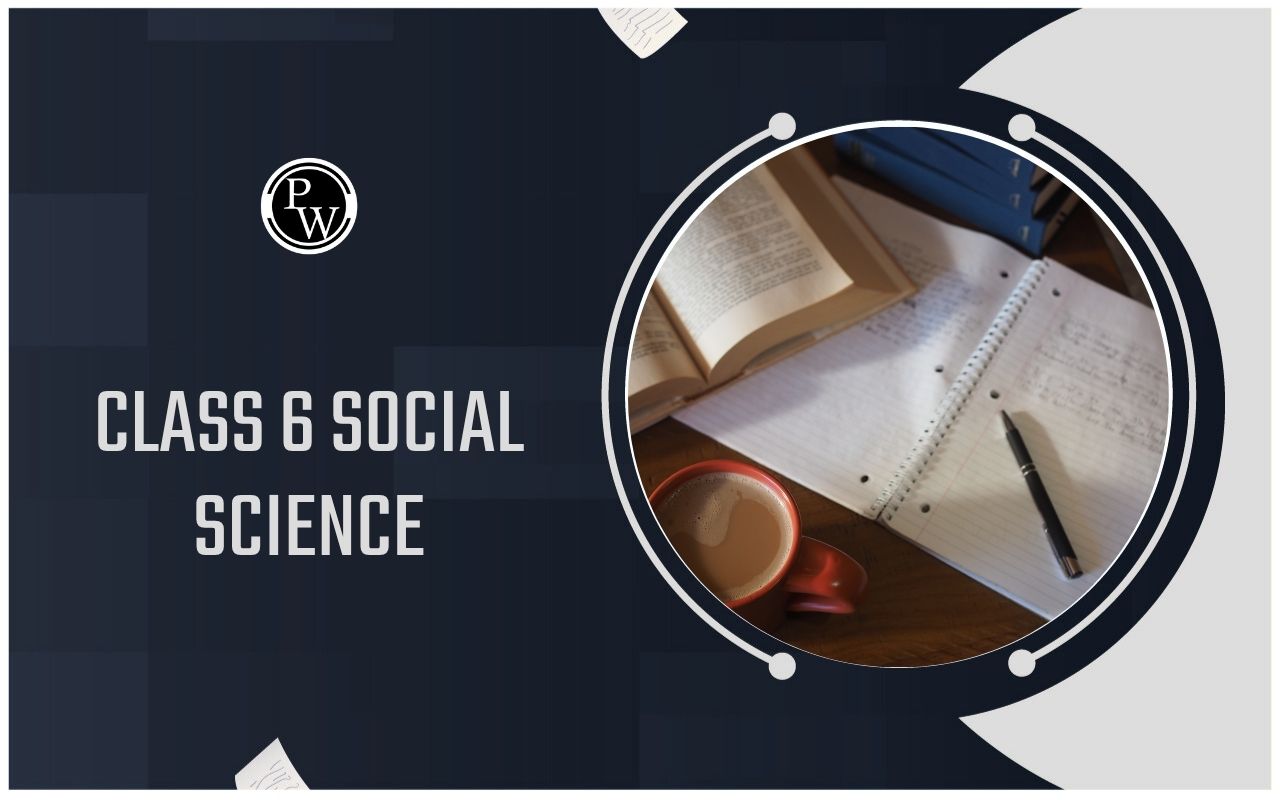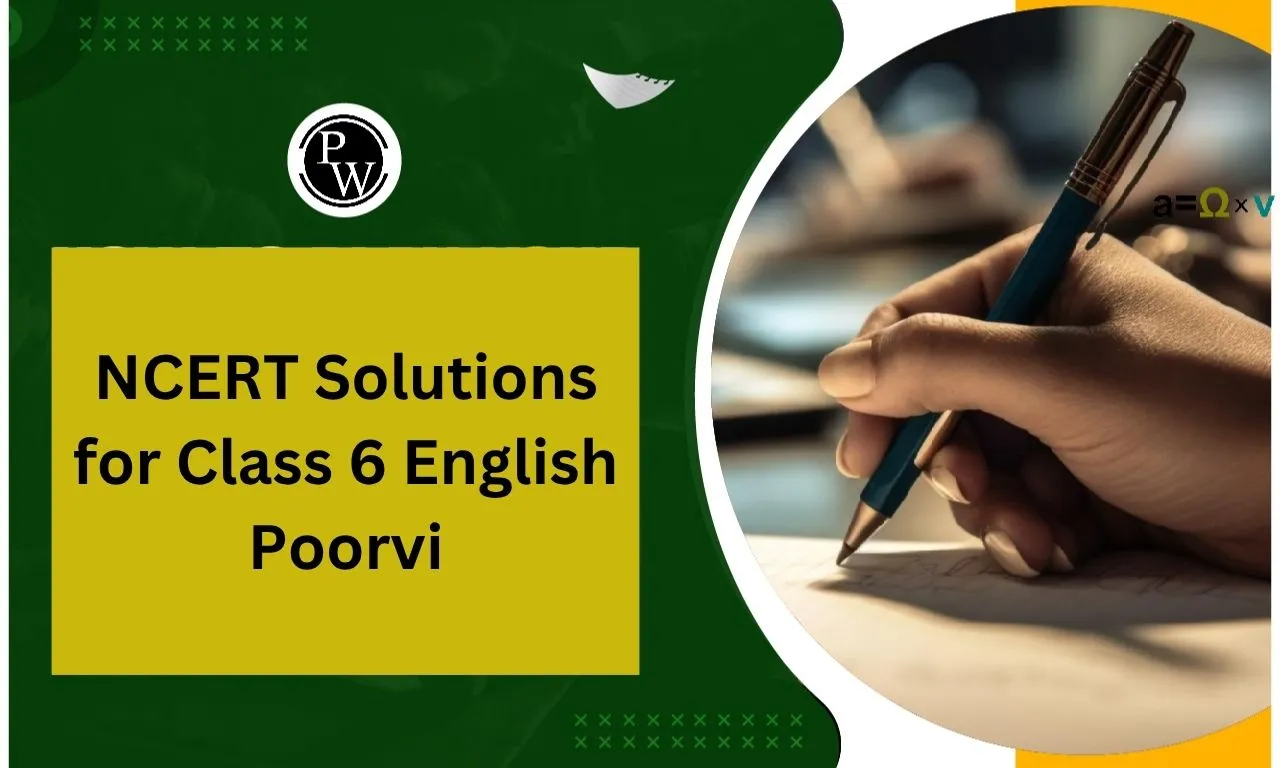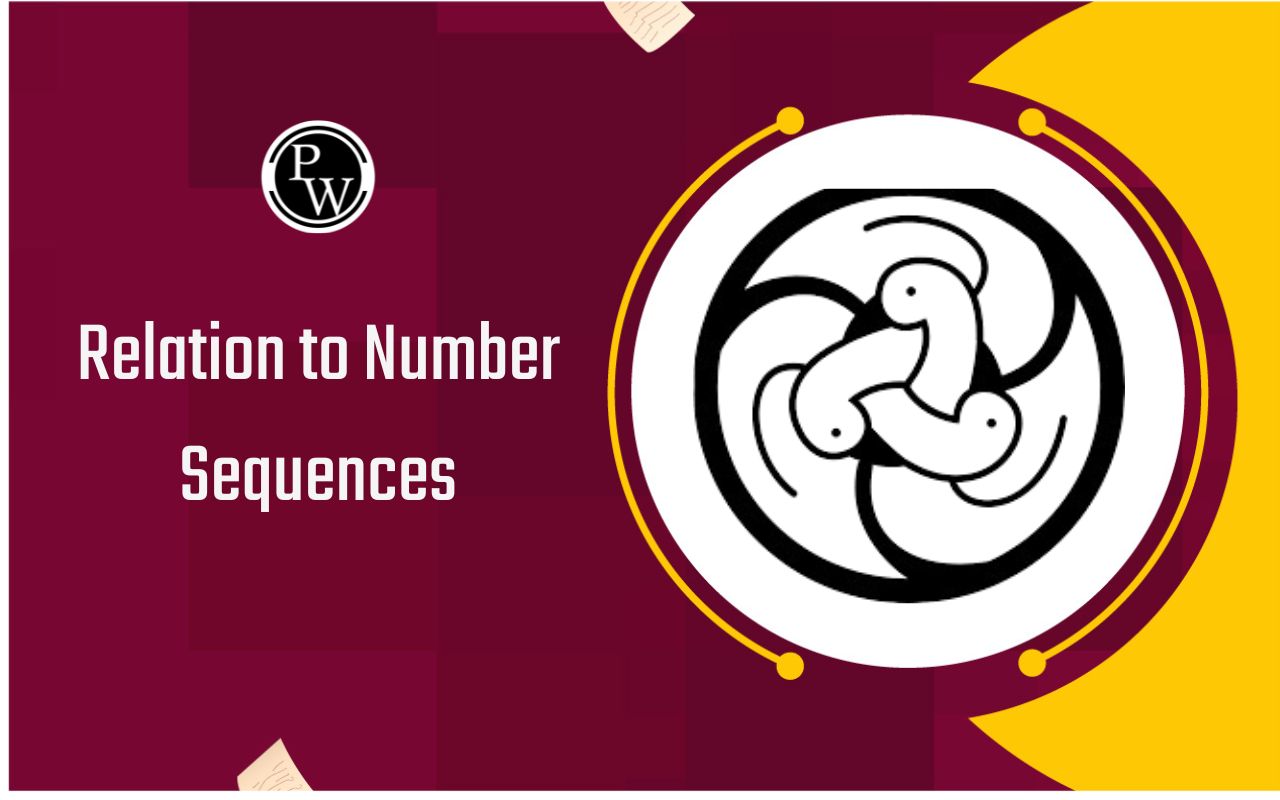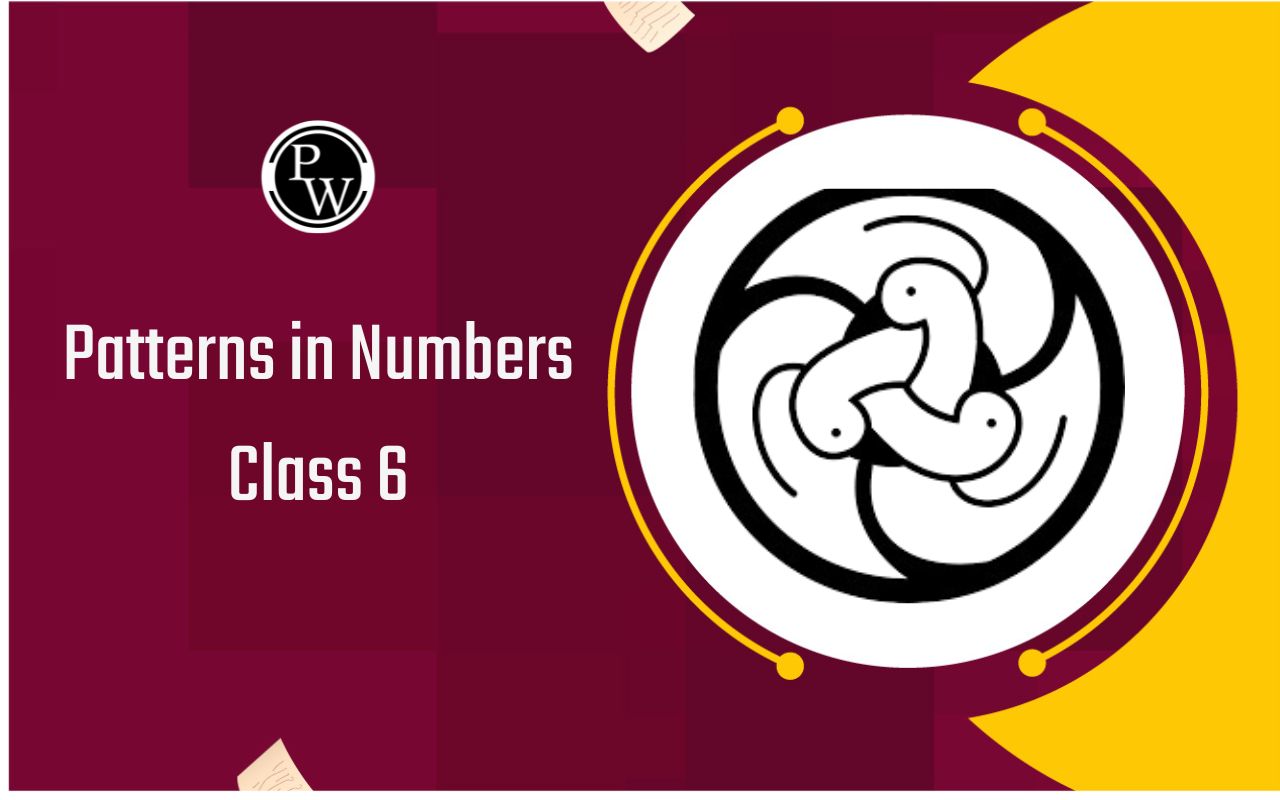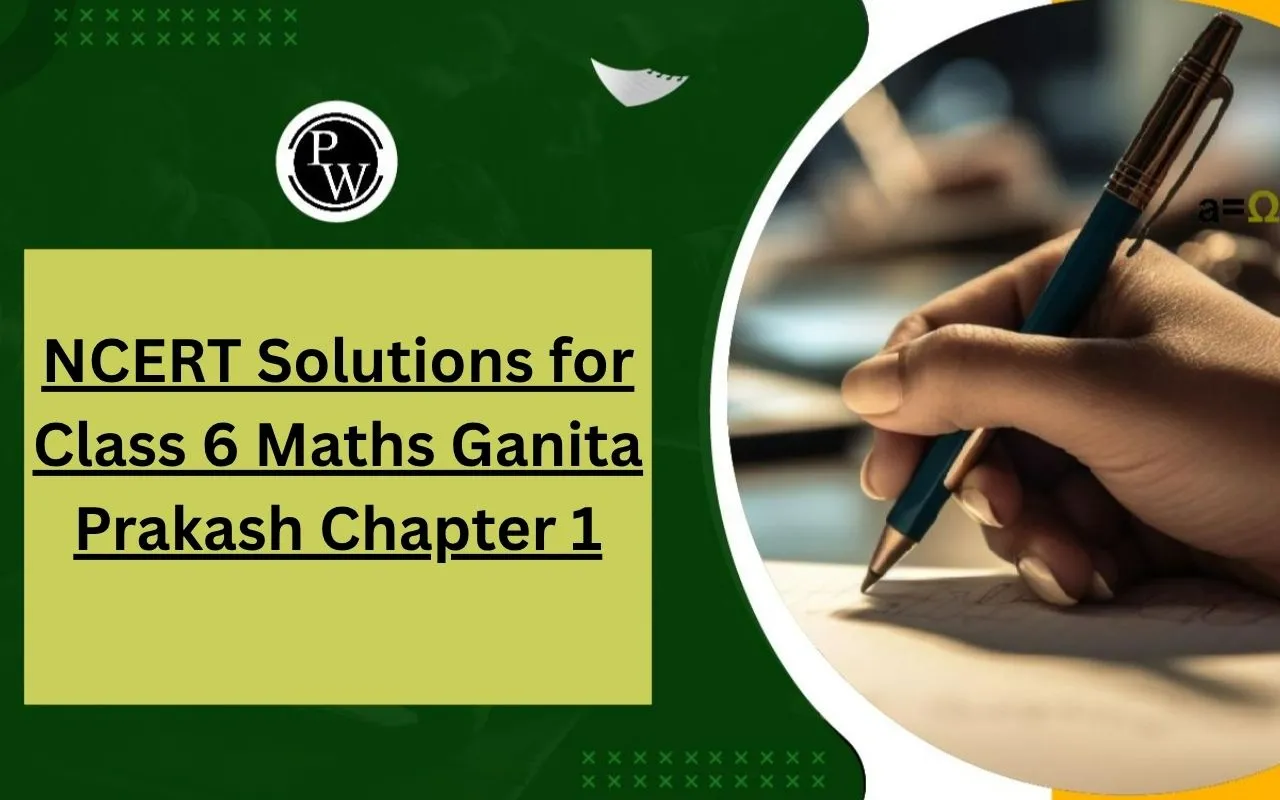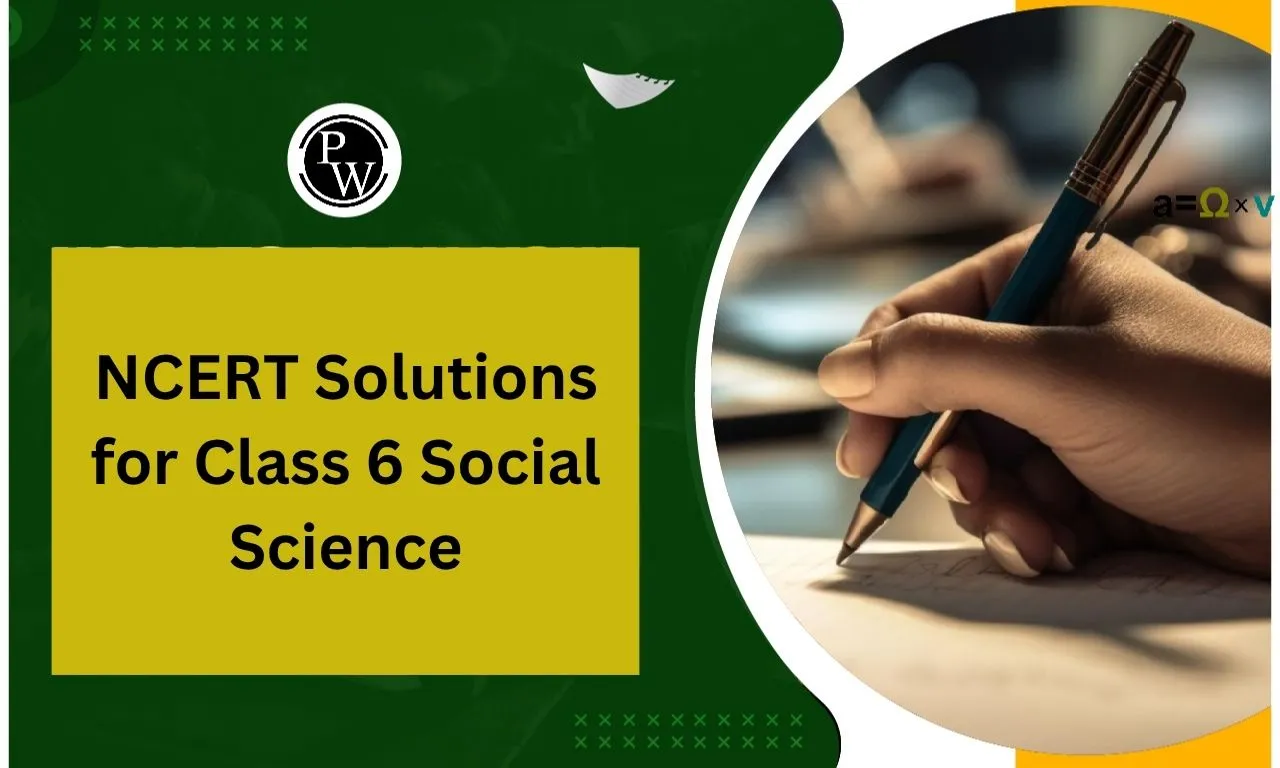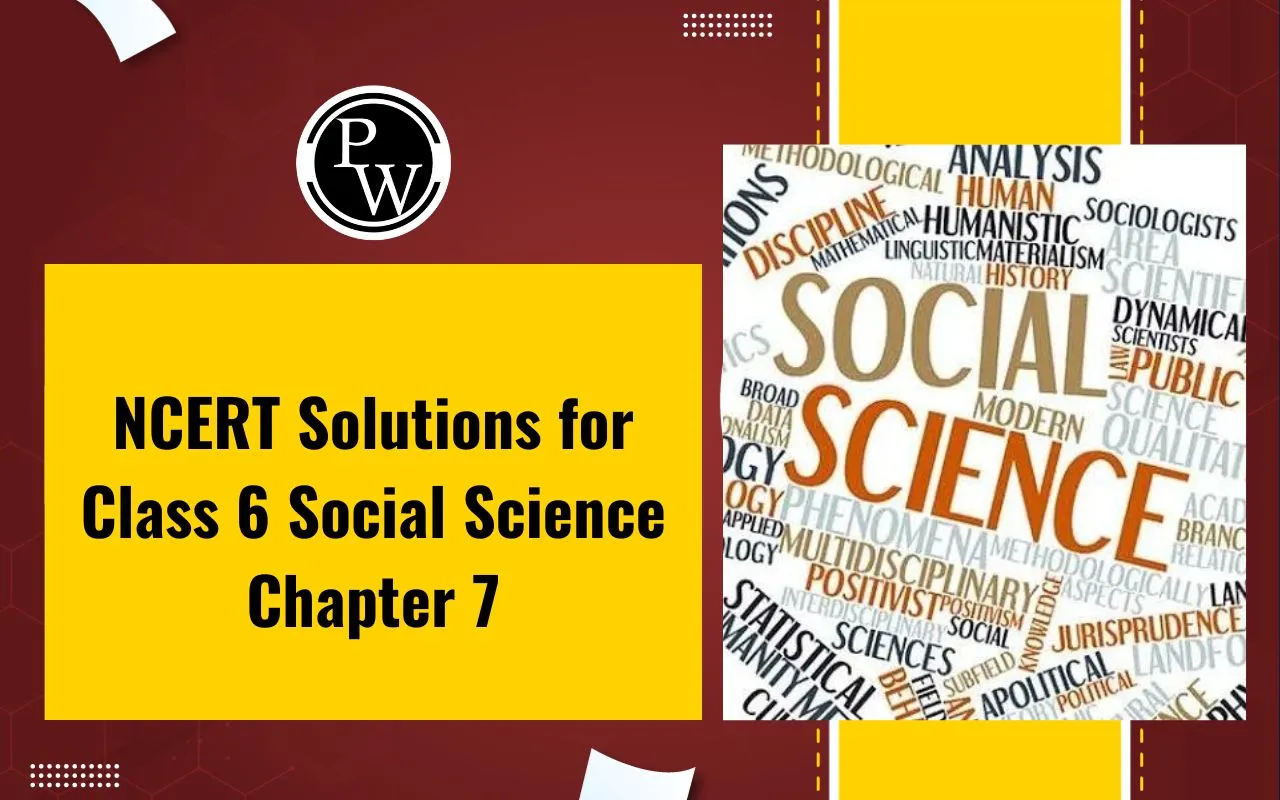
NCERT Solutions for Class 6 Social Science Chapter 10, Grassroots Democracy Part 1 Governance, provide clear and easy-to-understand answers to help students grasp the basic concepts of governance and democracy.
This chapter explains how rules and decisions are made to keep society organized and peaceful, and why a government is necessary. It also highlights the importance of democracy, where people have the power to choose their leaders and participate in decision-making.
These solutions help students learn about the role of rules in schools and communities, and how democracy ensures fairness, freedom, and equality for everyone. The explanations are designed to make learning simple and interesting for Class 6 students.
NCERT Solutions for Class 6 Social Science Chapter 10 Grassroots Democracy
Chapter 10 of Class 6 Social Science talks about Governance and Democracy at the grassroots level, which means how decisions are made and rules are followed in our everyday life, starting from local communities.
The chapter helps students understand the importance of having rules and a government to keep society organized and peaceful.
The chapter begins by explaining what governance means — it is the process of making decisions and organizing the life of society through rules that everyone must follow. Without governance, life would be chaotic and confusing.
Next, it discusses why we need a government. A government helps create and enforce rules, maintain order, and resolve conflicts so that people can live and work together happily.
The chapter then introduces the concept of democracy, which is a form of government where people choose their leaders. The word democracy means “rule by the people.” It explains why democracy is important: it treats everyone equally, gives freedom of opinion, and allows people to participate in deciding who governs them.
Students also learn about rules they follow in their schools and homes. The chapter shows how rules are necessary everywhere — whether at school, home, or in the community — to maintain discipline and fairness.
Through pictures and examples, the chapter highlights the difference between a place with no rules (which is chaotic) and a place where rules are followed (which is orderly and peaceful).
Overall, the NCERT Solutions help students understand these ideas clearly by answering important questions from the chapter, making it easier for them to learn about governance and democracy in their daily lives.
NCERT Class 6th SST Chapter 10 Question Answer
Here are the solutions for NCERT Solutions Class 6 Social Science Chapter 10 Grassroots Democracy. These solutions cover all the questions and exercises from the chapter to help students understand the concepts clearly and prepare effectively for exams.
The Big Questions (Page 149)
Question 1: What is the meaning of ‘governance’?
Answer: Governance means making decisions and organizing how a society lives by creating rules and making sure everyone follows them.
Question 2: Why do we need a government?
Answer: We need a government to make rules, keep peace and order, and solve problems so that society runs smoothly and fairly.
Question 3: What is the meaning of ‘democracy’? Why is it important?
Answer: Democracy is a system where people choose their leaders. It means “rule by the people.” It is important because it treats everyone equally, gives everyone a chance to become a leader, protects freedoms like speaking and choosing religion, and lets people decide who runs the government and change it if needed.
Let’s Explore
Question 1: Describe the two pictures given in Fig. 10.1 on page 151. What differences do you see between them?
Answer: The first picture shows a messy and chaotic place where people are not following any rules, so everything looks confused and disorganized. The second picture shows a clean and well-organized place where everyone follows rules, so things run smoothly and peacefully.
Question 2: How do you connect this with our discussion on rules? (Page 150)
Answer: Rules are very important to keep everything in order and make life better. Once rules are made, they can also be changed if needed. We have rules not only in society but also at school and home
Question 3: What are some rules in your school? Who made them?
Answer: Schools have rules for students, teachers, and staff to make sure everyone is safe and the learning environment is good.
Some common school rules are:
-
Students must come to school regularly.
-
Students should behave properly and follow discipline.
-
Wearing the school uniform neatly is required.
-
Students should keep good behavior in class to help everyone learn.
-
Using mobiles and laptops in class is not allowed.
-
Bullying or teasing others is not permitted.
OR
Question: Who makes these rules?
Answer: The school management, like the Principal and Vice-Principals, make these rules, often with advice from teachers and parents.
Question 4. Can you identify the categories of public service or other activities that are represented in the ten pictures in Fig. 10.2 on page 152? (Page 153)
Answer: The ten pictures show different public services, such as:
-
Building and maintaining roads and public places.
-
Transport services like buses and trains.
-
Police and security services to keep people safe.
-
Healthcare services such as hospitals and clinics.
-
Disaster relief and help during emergencies.
-
Traffic police managing road safety.
-
Courts and judicial services.
-
Education services like schools.
-
Postal services for mail delivery.
-
Banking services to help with money and transactions.
Question 5: What role does the government play in these activities?
Answer: The government makes sure everyone can use these services easily and affordably. It runs hospitals, schools, post offices, banks, police, and soldiers. It also builds roads, runs trains, and keeps people safe.
Question 6: Can you think of other aspects of your daily life where the government plays an important role?
Answer: Yes! The government also provides clean water, electricity, food supplies, protects consumers, manages transport, provides basic facilities like housing and fuel, and many other services we use every day.
Question 7. Explain how the three government organs are at work in the case of the cyber criminals described above. How do they intervene?
Answer: The Legislature (lawmakers) creates laws to stop cybercrime. The Executive (like cyber police) enforces these laws and catches the criminals. The Judiciary (courts) decides the cases and makes sure justice is done according to the law.
Question 8. As a class activity, can you imagine the sort of disorder we might witness if all three organs were under the control of the same group of people? Can you describe any such real-life situation you may have heard of?
Answer: Class activity — Think about it! If one group controls making laws, enforcing them, and judging cases, it can lead to unfairness and misuse of power. A real-life example is a dictatorship, where one leader or group controls everything without checks and balances.
Question 9: Ask some adults how they interact with the government. At what levels and for what reasons?
Answer: Adults might say they interact with the government in many ways, like:
-
Going to government offices for documents like ID cards or certificates.
-
Visiting government hospitals or schools.
-
Paying taxes to support public services.
-
Asking for help from police or local government officials.
-
Participating in voting to choose leaders.
Questions, Activities and Projects (Page 161)
Question 1: What is democracy? What is the difference between direct and representative democracy?
Answer: Democracy is a way of ruling where people have the power to make decisions either by themselves or by choosing leaders to decide for them.
-
Direct Democracy: People vote themselves on laws and decisions. Everyone’s opinion counts directly.
-
Representative Democracy: People elect leaders who make laws and decisions for them. India follows this system, and all citizens above 18 can vote.
Question 2.Recall the three organs of government. What are their different roles?
Answer: The three organs are:
-
Legislature: Makes and changes laws. It is made up of elected representatives.
-
Executive: Puts laws into action and keeps law and order. This includes the Prime Minister, ministers, police, etc.
-
Judiciary: Makes sure laws are followed fairly, decides if laws are broken, and gives punishments.
Question 3. Why do we need three tiers of government?
Answer: India has Central, State, and Local governments because it is a big country with many people. Different levels handle different work:
-
Central government looks after big national issues like defence and foreign affairs.
-
State governments manage things in their states like police and law and order.
-
Local governments take care of local problems like garbage collection, sanitation, and health services.
This system helps government work better and lets people be part of decisions near them.
Question 4.Project: Many of you will remember the lockdown that took place during the COVID-19 pandemic. Make a list of all the actions that were taken at that time? Which tiers of government were involved in managing the situation? What was the role of each of the organs of government?
Answer: Actions during lockdown:
-
People stayed home.
-
Schools closed.
-
No public transport.
-
No gatherings.
-
Only essential shops were open.
-
Doctors and nurses helped sick people.
-
Masks and sanitizers were used.
-
Vaccines were given.
Governments involved:Central government: Made important decisions and gave help to states.
-
State governments: Made sure people followed rules and helped local bodies.
-
Local governments: Helped enforce rules and support hospitals.
Roles of government organs:
-
Legislature: Created new rules and provided financial help.
-
Executive: Enforced rules and supported hospitals and citizens.
-
Judiciary: Ensured the government acted fairly and solved related problems.
NCERT Solutions for Class 6 SST Chapter 10 PDF Download
Students can download the NCERT Solutions for Class 6 Social Science Chapter 10 Grassroots Democracy Part 1 Governance in PDF format from the link below. These solutions are designed to help students understand the chapter clearly and perform well in exams. The PDF includes all textbook questions along with simple and precise answers, making it a great resource for study and revision.
NCERT Solutions for Class 6 Social Science Chapter 10
Study without using the internet
Preparation Tips for Class 6 Social Science Chapter 10 Grassroots Democracy Part 1 Governance
- Note down key ideas such as the meaning of governance, the role of government, democracy, and the different levels of government covered in the CBSE Class 6 Social Science syllabus.
-
Focus on understanding how rules help maintain order and why it is important to follow them.
-
Practice answering all the exercise questions at the end of the chapter and try solving sample papers or quizzes to get familiar with the exam format.
-
Discuss chapter topics with friends or study groups to clear doubts and see different perspectives on democracy and governance.
-
Review your notes and the chapter multiple times before exams to boost your memory and confidence.
NCERT Solutions for Class 6 Social Science Chapter 10 FAQs
What is Chapter 10 of Class 6 Social Science about?
Why are NCERT Solutions important for this chapter?
What topics are covered in Chapter 10?
How can I use the NCERT Solutions effectively?

